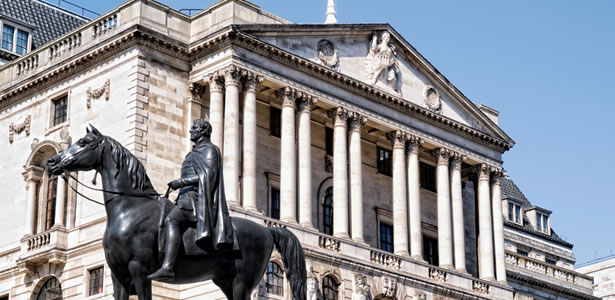Current base rate for savers and borrowers

As of August 2018, the UK’s base interest rate increased from 0.5% to 0.75%, marking the second increase of the decade (the base rate was previously adjusted from 0.25% to 0.5%).
While it wasn’t a cosmic shift in the UK’s economy, it represented a concerning jump for those with mortgages. Generally speaking, if you’ve got savings set aside, a rise in interest rates can be treated as good news. If you’ve got a mortgage, though, you may have to repay it at higher interest rates.
What do interest rates mean for borrowers?
If you’re on a fixed rate mortgage, new interest rates don’t apply until the end of your fixed period.
For those with variable rate mortgages, changes tend to have an immediate effect, with monthly mortgage repayments going up when interest rates rise. An example of this can be seen with the current base rate at 0.75%.
Before August 2018, the Bank of England base rate had been 0.5% ever since November 2017. Between August 2016 and November 2017, the base rate was at an all-time low at 0.25%.
If you're on a standard variable mortgage, your payments could rise by 0.25% (taking into account the jump from 0.5% to 0.75%), as most variable mortgages follow the Bank of England’s base rate. If you're on a tracker mortgage, your rate could also rise by the same amount as the base rate of 0.25%.
The same can be said for people with other existing loans such as for credit cards and tuition fees, as higher rates will also have negative effect unless the loans in questions are fixed rates.
When interest rates fall, the incentive to borrow money for large purchases like cars and houses increases as repayment amounts tend to be less.
What do interest rates mean for people with savings?
Those on fixed rate saving plans will find themselves in the same situation as those with fixed rate mortgages or loans. The very terms of these saving products mean they won’t necessarily benefit or suffer from a rise or fall in interest rates until the end of the agreed period.
With other savings options like annuities or easy access savings, new rates are usually available straight away. However, this depends on the bank or building society you’re with.
What do interest rates mean for first time buyers?
If you’re thinking about getting a mortgage, changes to interest rates might give you cause to pause. As mentioned previously, the higher the interest rate, the higher your repayments will be. On the contrary, a lower interest rate may be a sign to act now in terms of your house hunt.
A potential increase in interest rates can also reduce the amount of mortgage products available, as lenders look to remove lower rate mortgage offers from their product range.
Related Articles
- Guide to student overdrafts
- Guide to student credit cards
- What is a credit blacklist?
- What are 0% interest credit cards?
- Moving to the UK and your credit score
- Who can see your credit report?
- Should you lease or buy your next car?
- Student loan repayments
- Balance transfers explained
- Credit cards and minimum repayments
- Financial association explained
- Getting a mobile phone contract with bad credit
- What is a credit union?
- Why have I been refused a credit card?
- Why do people use vehicle refinancing?
- What does my credit score say about me?
- What to do if you've missed payments
- How to maintain a good credit score
- Can you achieve the highest credit score?
- Can you pay off loans early or late – or take a payment holiday?
- Infographic: Back to basics – how do credit reports and scores work?
- What happens to credit history when moving abroad
- Credit checks for renting
- Understanding credit score ranges
- Divorce and your credit score
- How credit cards work – how they may affect your credit rating
- Students and credit reports
- Credit agreements – the basics
- Different types of credit card
- Death and credit reports
- Newlyweds, financial planning and credit
- Getting credit cards with bad credit history
- What is a guarantor and how do they work?
- Explaining compound interest
- How Credit Scores Affect Car Finance
- How can I improve my credit score?
- Getting credit with no credit history
- Soft credit searches explained
- What to consider when applying for credit cards
- What is a credit rating?
- What types of credit can you get?
- Staying on the electoral register when moving
- The Electoral Register and How It Influences Credit Scores
- 7 types of credit provider
- Credit: Why do People Use it?
- Credit Myths - The truth about Credit
- Interest Rate Types
- Credit Hygiene
- Which factors affect credit scores??
- Your Credit Limits: Do’s & Don’ts
- Secured Vs Unsecured Loans
- Joint Liability - Everything You Need to Know